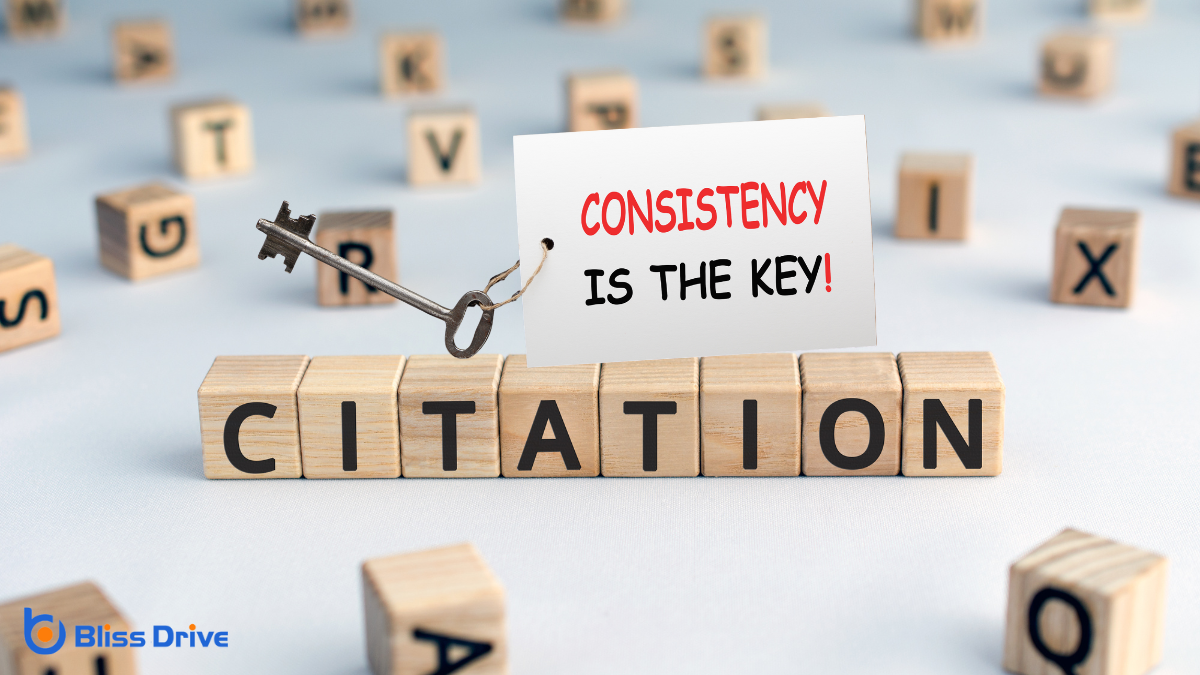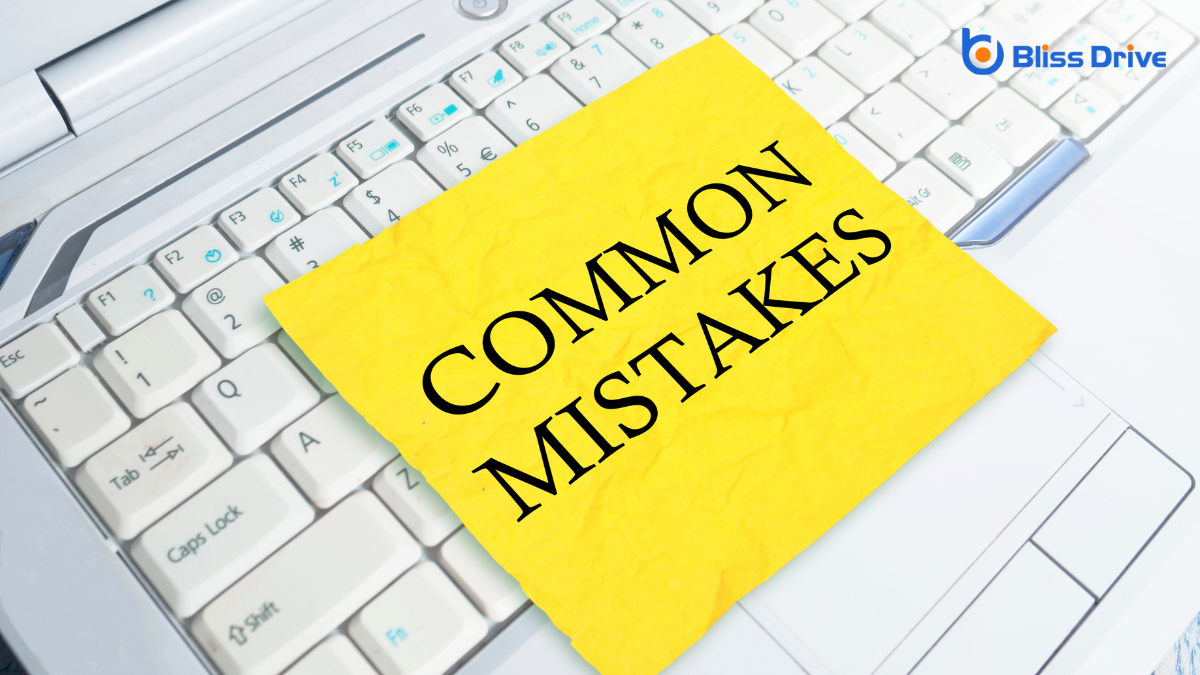PRICING
SERVICES
DIGITAL MARKETING SERVICES
COMPETITIVE ANALYSISSEO SERVICESCONVERSION RATE OPTIMIZATIONWEB DESIGNCONTENT MARKETINGPAY PER CLICKRESOURCES
When we think about boosting our online presence, we often come across the terms Local SEO and National SEO. But what do they really mean for us and our business strategies? Local SEO hones in on connecting with audiences in specific geographic areas, while National SEO broadens this horizon to reach people across the entire country. But how do these approaches differ in tactics and outcomes? Join us as we untangle these nuances.
When we explore the world of Local SEO, it's crucial to grasp its unique focus on optimizing a business's online presence for location-specific searches.
We're talking about targeting customers searching for services or products near them. Local SEO helps businesses appear in local search results, like Google Maps, where proximity to the searcher is key.
In this context, we utilize strategies such as optimizing Google My Business profiles, gathering online reviews, and ensuring consistent name, address, and phone number (NAP) information across platforms.
By doing so, we aim to connect with potential customers in our area, improving visibility and driving foot traffic to our physical locations.
Understanding Local SEO empowers us to effectively reach our target audience right in our community.

Let's shift our focus to national SEO, where we aim to reach broader audiences beyond local boundaries.
We need to craft competitive keyword strategies that capture attention on a larger scale.
Together, we'll explore how to position ourselves effectively in the national market.
Although local SEO focuses on reaching nearby customers, targeting broader audiences through national SEO allows us to cast a wider net, reaching potential customers across the entire country.
By optimizing our website for national search terms, we increase the visibility of our brand beyond regional boundaries. We need to take into account factors like diverse cultural preferences and geographical variances when crafting content that appeals to a nationwide audience. It's vital to tailor our messaging to resonate with different demographics.
National SEO involves developing a strategy that incorporates various elements, such as nationwide keyword research, engaging content, and extensive online presence.
We must guarantee our website is accessible and appealing to a diverse audience. This broader reach can lead to increased brand recognition and more substantial growth opportunities.
To effectively reach a national audience, we need to focus on competitive keyword strategies that enhance our national SEO efforts.
By identifying and utilizing the right keywords, we can boost our visibility across a wider geographic area.
Let's explore some key strategies we should consider:
When we compare local and national SEO, the target audience scope is a major factor that sets them apart.
Local SEO focuses on reaching customers in specific geographic areas, whereas national SEO aims for a broader audience across the entire country.
Our search engine strategy must adapt accordingly, prioritizing local keywords for local SEO and more general terms for national campaigns.
Understanding the target audience scope is essential when distinguishing between local and national SEO strategies.
When we focus on local SEO, we aim to connect with potential customers in a specific geographic area. Our efforts are directed toward attracting local clients who might visit our physical location or require our services nearby.
In contrast, national SEO casts a wider net, targeting audiences across the entire country without geographical limitations.
Here's how each approach might look:
Although both local and national SEO strategies aim to optimize search engine visibility, the tactics we employ diverge considerably due to their different scopes.
Local SEO focuses on geographical relevance, so we prioritize techniques like optimizing Google My Business listings, gathering local reviews, and using location-specific keywords. These strategies guarantee that local businesses appear in searches for nearby services or products.
In contrast, national SEO targets a broader audience, emphasizing brand authority and content that appeals to a wider demographic.
We concentrate on broader keyword research, high-quality backlinks, and extensive content marketing. Our goal is to rank well across the country, not just in specific regions.
Both strategies require unique approaches to achieve visibility, but the end goal remains increasing search engine rankings.
Why is geo-targeting essential in local SEO? It helps us connect with our audience on a personal level by addressing their needs based on location. Geo-targeting allows us to deliver content that’s relevant and timely, ensuring we reach the right people at the right moment.
When we use geo-targeting effectively, our local SEO strategy becomes more precise and impactful. Here’s how geo-targeting enhances our local SEO efforts:

While geo-targeting is a key component of local SEO, national SEO requires a different approach to reach a broader audience. Our content strategy should focus on creating thorough, high-quality content that appeals to a wide range of users across the country.
We need to prioritize topics with national relevance, ensuring we address the interests and pain points of a diverse audience. By incorporating long-tail keywords, we can capture more specific search queries and improve our chances of ranking higher on search engine results pages.
Additionally, let's not forget the importance of building authoritative backlinks from reputable websites. This will enhance our domain authority and establish trust with search engines.
Engaging in collaborations and guest posting can also extend our reach and visibility on a national level.
Google My Business (GMB) plays an essential role in the success of local SEO efforts. It acts as a cornerstone for businesses wanting to increase visibility in local searches.
By optimizing our GMB profile, we can attract more local customers and improve our online presence. Here's how GMB boosts local SEO:
Leveraging GMB effectively connects us with our local community and enhances local search performance.
To achieve national reach, we must adopt effective link building tactics that extend beyond local boundaries.
First, we should focus on obtaining backlinks from high-authority websites with a nationwide audience. This involves creating valuable content that attracts attention and earns links naturally. Guest blogging on popular industry sites can also help us reach a broader audience and build credibility.
Next, leveraging social media platforms boosts our content's visibility, increasing the likelihood of earning links from varied sources. Engaging with influencers who've a national presence can amplify our reach and backlink opportunities.
Finally, participating in national forums and online communities allows us to share insights and build relationships that may lead to valuable backlinks.
Together, these strategies help us solidify our national SEO efforts.

How can we effectively measure the success of our local SEO campaigns?
It's essential to focus on specific metrics that reveal how well we're connecting with our local audience.
Let's consider key indicators:
After understanding how to measure success in local SEO campaigns, we can shift our focus to the broader scope of national SEO strategy.
Analytics play an essential role here, guiding us in refining our approach and making informed decisions. We need to track key metrics like organic traffic, keyword rankings, and conversion rates across various regions.
This data helps us identify trends, understand user behavior, and adjust strategies to improve national visibility. Tools like Google Analytics and Search Console offer insights that let's optimize content, target the right keywords, and enhance user experience.
In wrapping up, we've explored the nuances between local and national SEO, each with its unique strategies and goals. Local SEO focuses on engaging nearby customers with geo-targeted tactics, while national SEO aims for a broader reach using competitive keywords and authoritative links. By understanding these distinctions, we can better tailor our strategies to meet specific business needs. Let's embrace the right SEO approach to maximize visibility and drive growth, whether locally or nationally.
When you're maneuvering through the world of local SEO, a citation audit tool becomes a powerful ally. It helps you identify and correct any inconsistencies in your business's online information across numerous directories. This tool guarantees that essential details like your business name, address, and phone number are accurate everywhere online. Maintaining this consistency is key to building trust with customers and improving search engine rankings. But how exactly does this tool enhance your local SEO strategy?
When diving into the world of local SEO, understanding its basics is essential for success. You need to know that local SEO optimizes your online presence to attract more business from relevant local searches.
It involves several strategies, such as optimizing your Google My Business listing, ensuring your business information is consistent across all platforms, and focusing on local keywords.
The goal is to make your business more visible to people in your area looking for your products or services. You should also encourage customer reviews and maintain a strong social media presence to boost credibility.

Accurate business citations are essential in local SEO because they confirm that potential customers and search engines can verify your business's legitimacy and location.
When your citations are consistent and precise, you build trust and credibility. Customers are more likely to find you and choose your services. Plus, search engines use this information to rank your business in local searches, making accuracy critical.
Consider the key elements of a solid citation:
Although managing business citations might seem overwhelming, citation audit tools simplify this process by scanning the web for your business's information. They work by crawling directories, social media, and other online platforms to locate inconsistencies in your business's name, address, and phone number.
You start by entering your business details into the tool, which then searches for listings. These tools compare the gathered data against your provided information, highlighting discrepancies and duplicates. You’ll quickly see where updates are needed.
Some tools even offer suggestions or direct links to correct errors. By keeping an eye on your online presence, you’re ensuring that potential customers find accurate information. These tools are essential for maintaining a consistent and reliable online footprint.
Using a citation audit tool offers several distinct advantages for your local SEO efforts. You can streamline your process, guaranteeing your business details are consistent across various online platforms.
This consistency builds trust with search engines and boosts your local search visibility. Additionally, these tools help you identify inaccuracies or outdated information quickly, saving you time and potential customer confusion.
Here are a few benefits you’ll notice:

You've seen how a citation audit tool can streamline your local SEO by ensuring accurate and consistent information across platforms.
Now, let's find the right tool for your business. Start by evaluating what you truly need. Is it a tool that checks accuracy, monitors changes, or both?
Look for user-friendly interfaces and robust reporting features that give you a clear overview without overwhelming data. Consider your budget, but don't compromise on essential features.
Read reviews and seek recommendations from peers who've tackled similar challenges. Test a few options; most offer trials or demos.
In local SEO, you can't underestimate the power of accurate business citations. A citation audit tool is your ally in ensuring that your business information is consistent and correct across the web. By using such a tool, you boost your online credibility, enhance customer trust, and improve your search engine rankings. So, choose the right citation audit tool for your business, and take control of your online presence today. Your future customers will thank you!
In local SEO, citation cleanup is all about tidying up your business's online presence. You might not realize it, but inconsistencies in your business name, address, or phone number across different platforms can hurt your credibility and search rankings. Imagine potential customers struggling to find accurate information about you. That’s where citation cleanup steps in, ensuring everything matches and is up-to-date. Curious about how this process can truly elevate your business?
Although mastering Local SEO might seem challenging at first, understanding its basics is essential for boosting your business's online presence.
It’s all about ensuring your business appears prominently in local search results, driving more foot traffic and sales. You’ll need to optimize your website with relevant local keywords, create a Google My Business profile, and gather customer reviews.
Consistency is key—make sure your business name, address, and phone number are uniform across all platforms. Engage with local communities online and offline to increase your visibility.
Remember, Local SEO is an ongoing process. Stay updated with the latest trends and adjust your strategies accordingly.

You can’t overlook the importance of accurate citations in local SEO, as they help search engines verify your business's legitimacy.
Inconsistent or incorrect citations can confuse potential customers and harm your local rankings.
Ensuring your business details are correct boosts your visibility and credibility in local searches.
In the domain of local SEO, accurate citations play a vital role in boosting your business's online visibility and credibility. When your business information is consistent and precise across various platforms, search engines trust your listings more. This trust translates to higher chances of your business appearing in local search results.
Accurate citations guarantee potential customers find the right contact details, address, and website—making it easier for them to engage with your business.
Imagine a potential customer finding several different phone numbers or addresses for your business. It creates confusion and may lead to lost opportunities. By maintaining accurate citations, you build a reliable online presence that fosters customer trust.
This consistency is essential in establishing your brand’s reputation and attracting more local clientele.
When it comes to local SEO, citations greatly influence your business's local rankings. They act as references and signals for search engines to verify your business's credibility and relevance.
Here's how they impact your local rankings:
You're likely to encounter two main issues with business citations: inconsistent business information and duplicate listings.
These problems can confuse potential customers and search engines, impacting your local SEO negatively.
To maintain your online presence, it's essential to regularly audit and update your citations.
Though it might seem like a minor issue, inconsistent business information can greatly impact your local SEO efforts.
Search engines prioritize accuracy, so discrepancies in your business details can confuse potential customers and lower your search rankings. To tackle this, focus on these areas:
Consistency is key to a robust local SEO strategy.
Duplicate citation listings are a common pitfall that can undermine your local SEO efforts. When search engines find multiple listings for the same business, they might get confused about which information is correct. This confusion can lead to lower search rankings and a diminished online presence.
Your potential customers could also become frustrated if they encounter different addresses or phone numbers, making it difficult to reach you. To tackle this issue, conduct a thorough audit of your business citations. Identify and merge duplicate entries to guarantee consistency across all platforms.
Use tools like Google My Business and other citation management services to help streamline this process. By eliminating duplicates, you’ll improve your local SEO and provide a better experience for your customers.
Conducting a citation audit is essential for maintaining your business's online presence and guaranteeing information accuracy.
Start by checking that your business details are consistent across various platforms. Here's a simple guide to help you:

When you're tackling citation cleanup, leveraging the right tools and resources can make the process more efficient and less intimidating. Start with Moz Local, which helps you find and fix inconsistent listings.
BrightLocal offers an excellent citation tracker to monitor your progress. For a more detailed approach, Whitespark provides a citation finder to identify new opportunities. You can also use Yext to manage multiple listings simultaneously, simplifying the update process.
Don't overlook free resources like Google My Business, which is essential for maintaining accurate business information. Additionally, online communities and forums are great places to learn from others’ experiences.
After utilizing the right tools and resources for citation cleanup, you'll discover several benefits that come with a thorough approach.
A detailed cleanup enhances your local SEO by boosting your business's visibility and credibility.
Here's how:
To summarize, conducting a citation cleanup is essential for your local SEO success. By ensuring your business's name, address, and phone number are consistent across all online platforms, you'll boost your credibility and improve search rankings. Take the time to audit and correct any discrepancies, and you'll make it easier for potential customers to find you. Utilize available tools and resources to streamline the process, and enjoy the benefits of increased foot traffic and a stronger online presence.
As you navigate the world of local SEO, you've probably heard about citation aggregators but might not fully grasp their significance. These platforms are essential for ensuring your business information remains consistent across the web, directly influencing your visibility and credibility. By automating data updates, they can save you time while improving your search rankings. But how exactly do they work, and what makes them so important for your online presence?
Citation aggregators play an essential role in local SEO by compiling and distributing business information across various online platforms. You might wonder why they're important. Well, they help guarantee your business details, like name, address, and phone number, remain consistent online.
Consistency is key in building trust with search engines and potential customers.
Picture citation aggregators as powerful directories scouring the web to collect and confirm your business data. They automatically update this information on websites, search engines, and apps. By doing so, they improve your online visibility and search rankings.
Understanding how they work can empower you to harness their potential. Remember, accuracy in your business listings is vital, as errors can lead to confusion and missed opportunities.

You can boost your local search visibility by using citation aggregators, which guarantee your business information is accurate across various platforms.
These tools streamline the citation management process, saving you time and reducing the risk of errors.
When it comes to boosting local search visibility, leveraging citation aggregators can be a game-changer. These platforms distribute your business information to numerous online directories, ensuring your presence is felt across the web. By doing so, you increase your chances of appearing in local search results when potential customers look for services you offer.
Think of citation aggregators as amplifiers for your business. They help search engines trust your business's legitimacy by showcasing consistent data across multiple sites. This trust translates into better search rankings, making it easier for local customers to find you.
Instead of manually updating information on each directory, aggregators handle the heavy lifting, saving you time and effort while boosting your online visibility. Embrace their power to elevate your local presence.
Accurate business information is the cornerstone of effective local SEO, and citation aggregators play a pivotal role in maintaining this accuracy. When your business details, like name, address, and phone number, are consistent across all platforms, search engines trust your information more.
Citation aggregators collect and distribute your business's data to various directories and platforms, ensuring uniformity. This consistency boosts your local search rankings and helps potential customers find you easily.
It's essential to keep your business details up-to-date. Any discrepancies can confuse search engines and mislead customers, impacting your credibility.
Maintaining consistent business information is just the beginning of effective local SEO. You need to streamline the citation management process to boost your local visibility. Citation aggregators play an essential role here, simplifying the task.
Here’s how they help:
When you use citation aggregators, they collect your business data from various sources, ensuring it's accurate and up-to-date.
These aggregators then distribute your information to multiple online directories, boosting your business's online presence.
Understanding how citation aggregators work starts with their data collection process. They gather local business information from various sources to create a thorough database. This process is essential because accurate data forms the backbone of local SEO.
Here’s how they collect data:
Once citation aggregators have compiled a robust database of local business information, they play an essential role in distributing this data to various online directories.
You might wonder why this distribution is vital. Well, it guarantees your business information is consistent across the web, which is key for improving your local search rankings. When directories like Yelp, Yellow Pages, or Apple Maps receive accurate data from citation aggregators, it helps potential customers find your business more easily.
To make this happen, citation aggregators use automated systems to push data updates to a wide range of directories, making certain your business details are up-to-date everywhere.
This way, you don’t have to manually update each directory yourself, saving you time and maintaining accuracy.
Leveraging citation aggregators can greatly enhance your local SEO efforts by ensuring your business information is accurate and consistent across various online directories. This consistency is essential for improving your search engine rankings and gaining customer trust.
When you use citation aggregators, you’ll experience several key benefits:
Understanding these benefits can guide your local SEO strategy effectively.

When you're looking to streamline your local SEO efforts, choosing the right citation aggregators is vital. These platforms help distribute your business information across various online directories, guaranteeing your presence is consistent and credible.
Start with Neustar Localeze, a major player that offers broad distribution and updates your details efficiently. Next, consider Foursquare, which has evolved beyond check-ins to provide robust data distribution.
Infogroup provides extensive reach, offering data to key search engines and directories. Finally, look at Data Axle, which ensures your business information reaches consumers accurately.
You can't underestimate the importance of having accurate Name, Address, and Phone Number (NAP) data for your business across all platforms.
Inconsistent NAP information can confuse customers and hurt your local SEO efforts.
Use tools designed for NAP management to guarantee everything stays up-to-date and consistent everywhere it appears.
Ensuring accurate data, especially NAP (Name, Address, Phone Number) consistency across platforms, is essential for any local business aiming to improve its SEO strategy.
When your business information is consistent, search engines trust your data, potentially boosting your local search rankings. Here’s why maintaining accurate data is vital:
Although maintaining consistent NAP information across various platforms might seem intimidating, utilizing the right tools can simplify this task considerably.
Start by leveraging citation management tools like Moz Local, Yext, or BrightLocal. These platforms streamline the process by allowing you to update your Name, Address, and Phone number (NAP) across multiple directories from one central location. They guarantee that changes are reflected accurately and quickly on all platforms.
Additionally, Google My Business is indispensable for managing your business info on Google Search and Maps.
Regularly audit your listings with these tools to catch discrepancies early. By doing so, you’ll prevent potential customer confusion and maintain your local SEO strength. Embrace these tools and keep your business’s online presence consistent and reliable.
Accurate citations play an essential role in boosting your local search rankings, as they help search engines verify the legitimacy and relevance of your business.
When your business information is consistent across the web, it increases your credibility and visibility.
Here's how citation accuracy impacts your search rankings:
Make citation accuracy a priority for improved search performance.

While accurate citations greatly enhance search rankings, leveraging citation aggregators presents its own set of challenges. You might encounter issues such as inconsistent data, where different listings display varying business information. This inconsistency can confuse both search engines and customers, impacting your reputation.
Additionally, keeping track of updates is tricky. Citation aggregators often pull data from multiple sources, so outdated information can linger if not managed properly.
Duplicate listings can also become a problem, as they dilute your online presence and confuse search engines, affecting your local SEO efforts.
Moreover, steering through the submission processes across various platforms can be time-consuming and complex. Each platform may have different requirements, making it challenging to maintain uniformity and accuracy across all listings.
To effectively manage your citations, start by conducting a thorough audit of all existing listings. Identify inconsistencies and outdated information that could confuse potential customers or search engines.
After pinpointing issues, follow these strategies to guarantee your citations remain accurate and helpful:
As you master the strategies for effective citation management, it's important to look ahead at what the future holds for citation aggregation.
You'll likely see increased automation, making processes faster and more accurate. Artificial intelligence will play a bigger role, helping you analyze citation data efficiently and correcting inconsistencies in real time.
Voice search and mobile optimization will become even more essential, so make certain your citations are voice-search friendly and mobile-responsive.
Additionally, integration with other digital marketing tools will be critical, allowing seamless data sharing and analysis.
Sustainability will also gain traction, with eco-friendly practices influencing how data is stored and managed.
Staying updated with these trends will keep you ahead in the ever-evolving world of local SEO.
In the world of local SEO, citation aggregators are your best friends. They guarantee your business's information is consistent and accurate across the web, boosting your visibility and credibility. By using these powerful tools, you’re not just improving search engine rankings but also building trust with potential customers. While there are challenges, staying on top of citation management is key. Embrace citation aggregators and stay ahead of future trends to keep your business thriving online.
You're probably wondering what a citation audit in local SEO is all about. It's essential for ensuring your business's online listings are consistent and accurate across different platforms. Inconsistencies can harm your search rankings and credibility. Conducting a citation audit helps you pinpoint these issues. Curious about how to start this process and the tools you'll need? There's more to uncover about maintaining your business's online presence effectively.
In the world of local SEO, citations are your business's footprints across the internet. They're mentions of your business name, address, and phone number (NAP) on various websites, directories, and social platforms.
You mightn't realize it, but these citations help potential customers discover your business and understand its legitimacy. Each citation acts like a signal, telling search engines where you are and what you offer.
When managing your online presence, verify that your NAP information is consistent across all platforms. Inconsistencies can confuse search engines and potential customers, diminishing trust.
Regularly check and update your citations to reflect any changes. By doing so, you create a solid, trustworthy online presence, making it easier for customers to find you and choose your services over competitors.

Although often overlooked, citations play a crucial role in determining your business's local search rankings. They act like digital signposts, guiding potential customers to your doorstep.
When search engines crawl the web, they rely on these citations to verify your business's legitimacy and relevance. The more accurate and widespread your citations, the easier it's for your business to rank higher in local search results.
Think of citations as votes of confidence. When your business is mentioned across various online directories, it signals to search engines that you're a trusted and established entity. This builds credibility and can lead to better visibility.
To leverage citations effectively, make certain your business’s name, address, and phone number (NAP) are consistently accurate across all platforms.
You'll find that maintaining citation consistency is essential for your local SEO efforts.
Accurate business information boosts your local rankings and guarantees that potential customers can find you easily.
Plus, by avoiding duplicate listings, you protect your brand's credibility and improve your chances of standing out in search results.
Imagine searching for a local business only to find varying addresses and phone numbers across different platforms—frustrating, right? Consistent and accurate business information is essential for your potential customers.
If your business details are inconsistent, people might question your reliability or even choose a competitor. You’ve got to guarantee your name, address, and phone number (NAP) are uniform in all directories.
Think of it as building trust. When customers find the same information everywhere, they feel confident reaching out to you. It’s not just about avoiding confusion; it’s about establishing credibility.
Invest time in regular citation audits to verify your business information remains current and precise. This simple act can enhance customer experience and reinforce your brand's reputation.
Establishing accurate business information builds trust, but it also plays a significant role in boosting your local search rankings. When your citations are consistent across various platforms, search engines can easily verify your business details. This consistency strengthens your credibility and helps search engines accurately associate your business with searches in your area.
You want search engines like Google to rely on your information, so they'll rank you higher in local search results. Inconsistent citations confuse search engines, making it harder for them to determine which details are accurate. This confusion can hurt your ranking potential.
When managing your business's online presence, ensuring citation consistency is essential to avoid duplicate listings. Duplicate listings can confuse potential customers and search engines, leading to lower search rankings and a muddled brand identity.
It's vital to maintain uniformity in your business name, address, and phone number (NAP) across all platforms. Inconsistencies can result in multiple listings for the same location, which dilutes your online presence and can mislead customers.
To prevent duplicates, regularly audit your citations, ensuring each entry is accurate and up-to-date. Use tools like Moz Local or BrightLocal to identify and correct discrepancies.
To keep your local SEO efforts on track, watch out for common citation errors like inconsistent business information, which can confuse search engines and potential customers.
Duplicate listings can dilute your online presence and create confusion, so make sure to regularly check for and remove any duplicates.
Also, selecting the wrong category for your business can mislead users and affect your visibility, so choose categories that accurately represent your services.
Although managing your business's online presence might seem straightforward, discrepancies in business information can greatly impact your local SEO efforts.
When your business name, address, or phone number (NAP) varies across directories, it confuses search engines and potential customers. This inconsistency can lead to lower search rankings and lost trust from users trying to find you.
To avoid this, guarantee your NAP is uniform across all platforms, including Google My Business, Yelp, and even social media profiles. Regularly auditing your citations will help catch any errors or updates needed.
Duplicate listings can be a thorn in the side of your local SEO strategy, often causing more harm than good. When your business appears multiple times in directories with slight variations, search engines might get confused.
This confusion can dilute your search engine rankings and frustrate potential customers. Imagine someone finds two different addresses for your business—it's not a great first impression, right?
To tackle this, regularly audit your business listings. Look for any duplicates and merge or delete them.
Consistent business information across all platforms strengthens your online presence and improves your ranking. Keep an eye out for automated systems that might inadvertently create duplicates.
While managing duplicate listings is essential for a streamlined local SEO strategy, another common pitfall is incorrect category selection. You may not realize how much impact this can have.
Selecting the wrong category for your business listing can confuse search engines and mislead potential customers. It's vital to choose categories that accurately reflect your services or products. Doing so guarantees that your business appears in relevant searches, attracting the right audience.
Take a moment to review your current category choices. Are they the best fit for what you offer? If not, adjust them to better align with your business.

To kick off a citation audit, start by gathering all existing business listings across various platforms. You’ll want to guarantee your business information is consistent and correct. Look for discrepancies that might confuse search engines or potential customers.
Follow these steps to streamline the process:
Having completed the citation audit, it's important to maintain your business listings effectively. Using the right tools can simplify this task.
Start with Moz Local, which helps you distribute your business information across major platforms. BrightLocal is another excellent choice, offering detailed tracking and analytics to keep your listings consistent. Yext provides real-time updates and syncing, ensuring your information stays accurate everywhere.
You might also consider SEMrush’s Listing Management tool for its user-friendly interface and extensive report generation. Don’t overlook tools like Whitespark for finding new citation opportunities and tracking existing ones.
Verifying your business citations are accurate can greatly enhance your local SEO performance. When your citations are spot-on, search engines trust your business more, making it easier for potential customers to find you.
Accurate citations lead to higher search rankings and increased visibility. Here’s how they impact your local SEO:

Now that you’ve audited and aligned your business citations, the next step is maintaining that consistency over time. Consistent citations are essential for building trust with search engines and potential customers.
To keep them aligned, create a checklist for updating your business information whenever changes occur. This could include altering your address, phone number, or business name.
Make it a habit to periodically check major directories like Google My Business, Yelp, and local listings. Automated tools can help monitor your citations, alerting you to discrepancies.
Also, encourage employees to report any business changes promptly. Remember, consistency isn’t a one-time task; it’s an ongoing commitment. By staying vigilant, you guarantee your business remains credible and visible to local searchers.
In summary, conducting a citation audit is vital for your local SEO success. By ensuring your business’s name, address, and phone number are consistent across all platforms, you can enhance your online visibility and build customer trust. Avoid common errors and use effective tools to manage your citations. Regular audits will help you maintain accuracy and prevent any negative impact on your search rankings. Stay proactive, and your local SEO efforts will yield better results.
When considering local citation building best practices, it's essential to guarantee NAP consistency across all platforms to bolster your business's local visibility. Start by claiming and optimizing your Google Business Profile and utilizing authoritative directories such as Yelp. Regular monitoring and responding to customer reviews also play an important role. Curious about how industry-specific directories can further enhance your local search rankings and attract more customers? Let's explore what's next.
When you're building local citations, understanding the importance of NAP (Name, Address, Phone Number) consistency can't be overstated.
This consistency guarantees that search engines and potential customers can easily find and trust your business information. If your NAP details vary across different platforms, search engines might get confused, which can negatively impact your local search rankings. You wouldn't want a customer showing up at the wrong address, right?
To maintain consistency, always use the exact same format for your business name, address, and phone number on every listing. Double-check for typos and confirm updates are reflected everywhere.
Even small discrepancies can lead to significant issues. By prioritizing NAP consistency, you enhance your credibility and improve the chances of being found by customers searching locally.

Finding the right platforms is essential for boosting your local SEO through citation building. Start by researching which directories are most relevant to your industry. Look for sources that are both authoritative and trustworthy. Popular options include Yelp, Yellow Pages, and industry-specific directories. Verify the credibility of these platforms by checking their domain authority and user reviews.
Next, consider the geographical relevance. Regional directories or local chambers of commerce often carry significant weight for local SEO.
Prioritize platforms where your competitors are listed, too. This not only helps you stay competitive but also highlights trusted sources in your market.
Claiming and optimizing your Google Business Profile is essential for local citation success.
Guarantee that all your business information is complete and accurate, add high-quality photos to attract customers, and select the most relevant categories for your business.
These steps will enhance your online presence and make it easier for potential customers to find you.
Guaranteeing your business information is complete and accurate on your Google Business Profile is essential to building a strong local presence.
Start by verifying your business name, address, and phone number—these details should match exactly across all platforms. Consistency helps search engines and customers find you easily.
Don’t forget to select the right business category, as this affects search visibility. Provide your operating hours and any special holiday hours to avoid customer confusion.
Adding a detailed business description can highlight what makes your business unique. Remember to include a link to your website to drive more traffic.
Regularly reviewing and updating your profile guarantees your information stays current, making it easier for potential customers to connect with you.
While enhancing your Google Business Profile, adding high-quality photos can greatly boost your local visibility.
Photos make your profile more inviting and trustworthy, giving potential customers a visual sense of what to expect. Use clear, well-lit images of your products, services, and premises to showcase the best of your business.
Confirm the photos are current and relevant, reflecting any recent changes. Consistently updating images keeps your profile fresh and engaging.
Also, encourage happy customers to share their own photos to build authenticity. Captions and alt text help search engines understand your images, improving your profile's ranking.
After enhancing your profile with enchanting photos, focus on selecting the right categories to claim and optimize your Google Business Profile effectively.
Choosing relevant categories helps Google understand your business and connect you with potential clients searching for your services. Start by identifying your primary service or product, then select the most specific category that accurately describes it. Avoid broad terms; specificity is key.
Check out your competitors' profiles for inspiration, but tailor your choices to your unique offerings. Don’t overstuff with irrelevant categories—this can confuse both Google and your audience.
Regularly review and update your categories as your business evolves. By aligning your profile with precise, relevant categories, you’ll enhance your visibility and attract the right customers.
To boost your local visibility, focus on listing your business in industry-specific directories.
These niche directories not only enhance your credibility but also make it easier for potential customers to find you.
Confirm that all submitted information is accurate and consistent to avoid confusion and maintain trust.
Industry-specific directories play an essential role in enhancing your business's online presence and credibility. By listing your business in niche directories, you connect with a targeted audience that’s already interested in your industry. This strategic move not only boosts your visibility but also builds trust with potential customers who see your business in reputable directories related to your field.
Moreover, niche directories often provide better-targeted traffic than general directories. As a business owner, you’ll want to guarantee your information is accurate and consistent across these platforms. Inconsistencies can confuse customers and search engines, potentially harming your reputation.
When aiming to maximize your local visibility, utilizing industry-specific directories is a powerful strategy. These directories cater to your field, making your business more visible to customers actively seeking your services. They’re not just a listing; they’re a trusted resource within your niche.
By being listed here, you’re positioning your business as credible and relevant in your industry. Start by identifying directories specific to your sector. Think about where your ideal customers are searching.
Once you’ve pinpointed these directories, make certain you’re listed. This step increases your chances of being found by potential clients who rely on these platforms for trusted recommendations.
Don’t underestimate the impact of a well-placed listing in the right directory; it can notably boost your local presence.
Guaranteeing the accuracy of your information in industry-specific directories is essential for maintaining your business's integrity and trustworthiness.
When potential customers search for your services, they rely on these directories to find reliable details. Incorrect information can lead to confusion, mistrust, and lost opportunities.
To guarantee your submissions are precise, focus on key elements:

To effectively boost your local SEO, leveraging local business listings and directories is essential. Start by identifying popular directories like Google My Business, Yelp, and Yellow Pages. Claim your business profile on these platforms, guaranteeing your information is accurate and consistent across all listings.
This consistency helps search engines trust your business details, enhancing your local search rankings. Use niche-specific directories relevant to your industry for added visibility. Verify your business name, address, and phone number (NAP) are identical on every listing.
Add engaging photos and a compelling business description to attract potential customers. Encourage satisfied customers to leave positive reviews, as these can enhance your business's reputation and search performance.
Taking advantage of these listings can considerably improve your online presence and attract local customers.
After establishing your presence on local business listings and directories, maintaining the accuracy of your citations becomes vital.
Keeping your information up-to-date guarantees that potential customers can find you easily and helps your business build trust with search engines. Regularly monitoring your citations is essential for avoiding inconsistencies that could confuse customers or harm your search rankings.
Here’s how you can manage this effectively:
When you actively encourage customer reviews and feedback, you open the door to valuable insights and increased credibility for your business.
Positive reviews can enhance your local citation profile and attract more customers. Start by asking satisfied customers to share their experiences online. Make it easy for them by providing links to your review pages in follow-up emails or on receipts.
Respond promptly to reviews, showing appreciation for positive comments and addressing any concerns in negative ones. This engagement demonstrates your commitment to customer satisfaction.
Encourage honest feedback by creating a welcoming environment where customers feel heard. By fostering open communication, you build trust and loyalty.

Just as encouraging customer reviews enhances your credibility, keeping a close eye on your citation performance offers valuable insights into your local presence.
Tracking your citations isn’t just about numbers; it’s about understanding your business’s visibility and reputation. By analyzing your citation performance, you can:
Regular analysis helps you verify that your business information is accurate and up-to-date.
Don’t leave your local visibility to chance; make data-driven decisions to enhance your reach and reputation. Stay proactive, and watch your local presence thrive.
To boost your local search rankings, make sure you're maintaining NAP consistency across all platforms. Claim and optimize your Google Business Profile, and focus on authoritative directories like Yelp and Yellow Pages. Don't forget industry-specific directories—they're goldmines for attracting the right audience. Regularly monitor your citations for accuracy and engage with customer reviews. By keeping your information updated and tracking your citation performance, you'll effectively enhance your local visibility and draw in more customers.
You're probably wondering which local citation sites can give your business the SEO boost it needs. There are a few key players in the game that can greatly impact your local search results. By leveraging these platforms, you're not only increasing visibility but also establishing trust with potential customers. Curious about which sites are essential for your strategy? Let's explore the options that could transform your local online presence.
Even if you're just getting started with SEO, understanding the importance of local citations is crucial. They serve as online references to your business's name, address, and phone number (NAP) on trustworthy websites.
These citations boost your visibility in local search results, making it easier for potential customers to find you. When search engines see consistent and accurate citations across the web, they gain confidence in your business's legitimacy.
This not only improves your local search rankings but also enhances your credibility with customers. Accurate citations help guarantee you're listed correctly on maps and directories, directing more foot traffic to your door.

Google My Business (GMB) acts as the cornerstone of your local SEO strategy. It's the first step in ensuring potential customers find you easily. By setting up your GMB profile, you're providing essential information like your business name, address, phone number, and hours of operation. This makes it easier for locals to connect with you.
Don't underestimate the power of maintaining an updated profile. Regular updates signal to Google that your business is active, which can improve your search ranking. Encourage customer reviews on your GMB page; they play an important role in building credibility.
Moreover, GMB offers insights into customer interactions, helping you understand your audience better. Use this data to refine your marketing efforts and enhance your local presence.
Why is Yelp essential for building trust with your customers? It’s one of the most popular review platforms where people share their honest experiences. When potential customers see your business on Yelp with positive reviews, they’re more likely to trust you.
Reviews act as social proof, showing real interactions with your service or product. Engaging with reviewers by responding to comments can also boost your credibility.
Make sure your Yelp profile is complete and up-to-date. Add photos, business hours, and contact information to help users easily find and contact you.
Encouraging satisfied customers to leave reviews can further enhance your reputation. Don’t ignore negative feedback; respond professionally to show you care about improving.
Utilizing Yelp effectively can greatly impact your business’s perceived trustworthiness.
To expand your reach through Bing Places for Business, start by claiming your business to guarantee your information is accurate.
Once you've done that, optimize your listing with relevant details and high-quality images to attract more customers.
Finally, track your local performance using Bing's insights to understand how well you're engaging with your audience.
Expanding your business's online presence is essential, and claiming your business on Bing Places for Business can greatly enhance your reach. By doing so, you guarantee potential customers find accurate information about your company.
It’s a straightforward process that provides significant benefits:
Take advantage of Bing Places for Business to establish a strong local presence and connect with more customers.
Once you've claimed your business on Bing Places for Business, the next step is to optimize your listing to maximize its impact.
Start by ensuring your business information is accurate and complete—this includes your name, address, phone number, and website. Consistency across all platforms strengthens your online presence.
Use high-quality images to showcase your products or services, making sure they’re clear and engaging. Craft a compelling business description that highlights what makes you unique.
Remember to select the appropriate categories to help customers find you easily. Encourage reviews by providing excellent service and politely asking satisfied customers to share their experiences.
Finally, update your listing regularly with new offers and promotions to keep it fresh and relevant.
While optimizing your Bing Places for Business listing is essential, tracking your local performance guarantees you're reaching your target audience effectively.
You need to know how your efforts impact your visibility and customer engagement. Start by analyzing the insights Bing provides. This data helps you understand where improvements are necessary.
Consider these steps to enhance your tracking:

On Facebook, you can boost local engagement by actively interacting with your audience through posts and comments.
Make sure your business information is up-to-date and optimized to help potential customers find you easily.
Social media platforms have become indispensable tools for businesses aiming to boost local engagement, and Facebook stands out as a powerful ally in this endeavor.
By effectively leveraging Facebook, you can connect with your local audience and enhance your visibility. Here’s how:
When enhancing your local visibility on Facebook, optimizing your business information is essential. Start by ensuring that your business name, address, and phone number are consistent across all platforms. This consistency helps search engines and customers find you easily.
Don’t overlook adding a detailed description of your business, including services, hours, and unique offerings. This information boosts your credibility and makes it easier for potential customers to choose you.
Use engaging photos and videos to showcase your products and services. Visual content attracts more attention and keeps users interested.
Regularly update your page with relevant posts, promotions, and events to stay connected with your audience. Encourage customer reviews and respond promptly to build trust and engagement.
These steps help leverage Facebook’s reach for enhanced local visibility.
Many businesses overlook the potential of Apple Maps, yet it’s a powerful tool for effectively reaching iOS users.
By ensuring your business is accurately listed, you can tap into a vast audience of iPhone and iPad users who rely on this app for navigation and local searches.
Here’s how you can make the most of Apple Maps:
Though often seen as a relic of the past, Yellow Pages still holds significant power in the modern digital landscape. You might think of it as just a thick book gathering dust, but its online presence is a goldmine for local businesses.
Listing your business on the Yellow Pages can boost your local SEO by increasing your visibility and credibility. It's trusted by users seeking reliable information, making it an essential citation site.
Don't underestimate its reach; Yellow Pages' integration with search engines means your business can appear in local search results.
Plus, maintaining up-to-date information there helps build trust with potential customers. So, make sure your business is listed accurately to leverage this longstanding directory's modern impact on your online presence.

Foursquare stands out as an essential platform for businesses aiming to engage with a mobile-driven audience. With its location-based services, it helps users discover new places while allowing businesses to enhance their visibility.
Here’s how you can leverage Foursquare for SEO success:
To boost your local SEO, you need to actively engage with top citation sites. Start by optimizing your Google My Business profile, as it's crucial for local visibility. Don’t overlook Yelp, where positive reviews can build trust. Expand your reach with Bing Places and leverage Facebook’s broad audience. Apple Maps guarantees you connect with iOS users, while Yellow Pages offers a modern twist on a classic directory. Finally, engage with mobile users through Foursquare to enhance your online presence.
Building local citations for your business is an essential step in enhancing your online visibility and credibility. You'll need to identify the right directories and guarantee your NAP information is consistent across all platforms. But how do you make certain you're listed in the best places and keep everything up-to-date? There's an art to managing these citations efficiently and getting customer reviews that can boost your local search rankings. What's the secret to mastering this process?
When you're building your business's online presence, understanding the importance of local citations is essential. Local citations are mentions of your business's name, address, and phone number on various online platforms. They play a significant role in improving your local search engine rankings.
By ensuring that your business details are consistently listed across multiple sites, you enhance your visibility and credibility. Search engines like Google use these citations to verify the existence and legitimacy of your business.
When your information is consistent and widespread, it can positively impact your local search results. This makes it easier for potential customers to find you.
To effectively build local citations, you need to identify directories that cater specifically to your industry.
Start by prioritizing industry-specific directories, as they're more likely to attract your target audience.
Don't forget about local directories, as they boost your visibility in your community.
Although it might seem intimidating at first, selecting the right industry-specific directories is essential for boosting your business's online presence and credibility.
You need to focus on directories that cater specifically to your industry, as they provide targeted visibility and enhance your reputation among peers.
Here's how you can identify the right ones:
Identifying key local directories for your industry is essential for establishing a strong online presence. Start by researching which directories are popular in your field. Look for those with high domain authority, as they can boost your search engine rankings.
Prioritize directories that are frequently used by your target audience. Pay attention to customer reviews and feedback on these platforms to gauge their effectiveness.
Next, check out your competitors. See where they’re listed and consider if those directories could benefit you, too.
Don’t forget to explore regional directories, as they can provide excellent local visibility. By carefully selecting the right directories, you’ll guarantee your business gains credibility and becomes easily discoverable by potential customers.
Prioritizing strategically will maximize your online impact.

Maintaining consistency in your business's NAP (Name, Address, Phone number) information is essential because even minor discrepancies can confuse potential customers and search engines alike.
Confirming that your NAP details are uniform across all platforms builds trust and enhances visibility.
Here’s how you can maintain that consistency:
Beyond ensuring consistent NAP information across platforms, you can streamline your citation management with the help of online tools. These tools save you time and minimize errors by automating updates across various directories.
Services like Moz Local, Yext, and BrightLocal are popular choices. They help you manage multiple listings from a single dashboard, ensuring your business details are accurate everywhere.
Using these tools, you can easily track where your business is listed and identify any missing or inconsistent citations. This proactive approach helps maintain your online presence and boosts local SEO efforts.
Plus, most tools offer analytics to monitor your citation performance, giving you insights into areas that need attention. Embrace technology to keep your business information current without the hassle.
When it comes to boosting your business's credibility and online presence, encouraging customer reviews and engagement is essential.
Positive reviews not only enhance your reputation but also influence potential customers. Here’s how you can encourage engagement:

While encouraging customer reviews enhances your business's online presence, keeping your citations accurate and up-to-date is equally important.
Regularly monitoring your listings guarantees potential customers find the right information. Start by setting a schedule to review your business details across platforms like Google My Business, Yelp, and industry-specific directories.
Don't underestimate the impact of changes such as phone numbers, addresses, or operating hours. Even minor discrepancies can confuse customers and harm your credibility.
Use tools like Moz Local or BrightLocal to streamline tracking and updates.
Building local citations is essential for boosting your business's online presence. Start by identifying relevant directories specific to your industry and location. Always verify your NAP information is consistent to enhance your credibility. Use tools like Moz Local or BrightLocal for easy management and tracking of your listings. Don’t forget to encourage customer reviews and actively engage with them. Regularly monitor and update your citations to maintain and improve your local search engine rankings.
You're probably aware that boosting your business's online presence is essential, but have you considered the role of local citations in local SEO? These mentions of your business's name, address, and phone number (NAP) across various websites can greatly impact your visibility in search results. Consistent and accurate citations not only build trust with search engines but also with potential customers. Curious about how this works and why it's so important?
Local citations play a crucial role in boosting your business's online presence. They’re fundamentally mentions of your business’s name, address, and phone number (NAP) on various online platforms.
When these citations appear on websites like local directories, social media, or review sites, they enhance your visibility and credibility. You’ll find that the more consistent and accurate your citations, the better your business performs in local search results.
Think of local citations as digital footprints that guide potential customers to your doorstep. They build trust and authority, especially when they appear on reputable sites.
Customers rely on these citations to verify your business's legitimacy. By ensuring your business details are correct and widespread, you’re making it easier for local customers to find and choose you over competitors.

When it comes to local citations, consistency is key. Maintaining uniformity in your business information across various platforms is essential. Inconsistent citations can confuse search engines, leading to lower rankings.
You may wonder why consistency matters so much. Here’s why:
When building local citations, start by focusing on essential citation directories like Google My Business and Yelp.
Don't overlook industry-specific citation sites that can boost your visibility within your niche.
Building a strong local SEO strategy requires you to focus on essential citation directories that can greatly enhance your online presence. By listing your business on these platforms, you increase visibility and credibility with potential customers.
Here are four key directories you should consider:
While listing your business on major directories like Google Business Profile and Yelp is essential for local SEO, it's equally important to contemplate industry-specific citation sites.
By targeting platforms tailored to your field, you enhance your visibility among a niche audience actively seeking services like yours. For example, if you're in the hospitality sector, consider listing on TripAdvisor.
Real estate professionals might benefit from Zillow or Realtor.com. These sites not only boost your local search ranking but also lend credibility, as they’re trusted within specific industries.
To boost your business's credibility, make sure your business details are consistent across all platforms.
It's essential to verify that your contact information is current and authentic, as discrepancies can confuse potential customers.
When potential customers search for your business online, they expect to find accurate and consistent information.
Confirming consistency in your business details builds trust and boosts your local SEO. Here’s how you can maintain consistency:
Verifying your business's contact information is authentic and accurate is essential for maintaining credibility with your customers.
When potential clients search for your services, they rely on your contact details to reach you. If they encounter inconsistent or incorrect information, it can lead to frustration and mistrust.
You need to confirm that your phone number, address, and email are correct across all platforms, including local directories, websites, and social media. This consistency helps search engines trust your business, boosting your local SEO ranking.
Regularly updating your contact details verifies that your customers can always find you, and it shows you care about their experience.

Although local citations might seem like a minor aspect of SEO, they play an essential role in boosting your search rankings. When your business is consistently mentioned across various platforms, search engines view it as credible and relevant, thereby improving your visibility.
Here’s how local citations enhance your search rankings:
To effectively manage and maintain your local citations, start by conducting a thorough audit of your existing listings to identify inconsistencies or outdated information.
Once you've pinpointed the discrepancies, update them immediately across all platforms. Verify your business name, address, phone number (NAP), and other details are consistent everywhere.
Use tools like Google My Business and other citation management platforms to simplify the process.
Regularly check for new listings or changes in existing ones. Set reminders to review your citations quarterly or biannually.
Engage with platforms that allow user-generated content to correct any inaccuracies swiftly. Keep a detailed record of where your citations are listed and monitor them for any unauthorized changes.
Tracking the success of your local citation efforts involves several key metrics that can paint a clear picture of your impact.
Start by focusing on these essential areas:
By actively managing your local citations, you’re boosting your business's visibility and credibility in local search results. Consistent and accurate NAP information across key platforms builds trust with search engines and potential customers, enhancing your search rankings. Don’t underestimate the power of well-managed citations; they’re an essential part of your local SEO strategy. Keep your information up-to-date to drive more traffic, increase sales, and guarantee your business stands out in local searches.
When you explore local SEO, you’ll come across the term "local citations." These are online mentions of your business's name, address, and phone number, or NAP, scattered across the web on directories and social platforms. They’re essential for boosting your visibility in local search results. But why is consistency so important, and how exactly do these citations impact your business's local SEO? Stay with us as we uncover the intricacies of local citations.
When you're diving into the world of SEO, understanding local citations is essential. These citations are mentions of your business's name, address, and phone number (NAP) across the web. They don't need to include a link to your website, but consistency is vital. Make sure your NAP details match exactly everywhere they're listed. Inaccuracies can confuse search engines and potential customers, hurting your local search rankings.
Local citations can appear on directories, websites, and social media platforms. They boost your business’s visibility and credibility in local search results.

When you're boosting your local SEO, you'll want to focus on two main types of citations: structured and unstructured.
Structured citations typically appear on business directories, like Yelp or Yellow Pages, where your information is consistently formatted.
Unstructured citations might show up in places like blog posts or news articles, where your business details are mentioned more casually.
Although local SEO strategies can be multifaceted, focusing on structured citation sources is essential for boosting a business's online presence.
Structured citations refer to listings where your business information—name, address, and phone number (NAP)—appears consistently across various online directories. These include platforms like Yelp, Yellow Pages, and Google My Business. Ensuring accuracy in these listings helps search engines trust your business, improving search rankings.
To effectively utilize structured citations, keep your NAP details consistent everywhere. Even minor discrepancies can confuse search engines, potentially harming your visibility. Regularly update your information if changes occur.
Unstructured citations play an essential role in local SEO by providing additional references to your business across the web in a less formal manner than structured citations. They appear in various places such as blogs, news articles, or forum discussions.
Imagine a blogger mentioning your restaurant in a post about the best places to eat in your city. That’s an unstructured citation.
Even comments on social media where someone recommends your business can count. These references don’t follow a specific format but still include vital information like your business name, address, or phone number.
Ensuring NAP (Name, Address, Phone number) consistency is essential for local SEO success. When your business's details are uniform across all online platforms, search engines, and customers trust your information more.
Imagine a user searching for your services but finding different addresses or phone numbers—confusing, right? You want to avoid that scenario.
Start by auditing your business listings on search engines, social media, and directories. Make sure every instance of your business name, address, and phone number matches exactly.
Even minor discrepancies, like abbreviations or misspellings, can lead to mistrust and affect your rankings. Tools like Moz Local or BrightLocal can help manage and monitor your citations for consistency.
When it comes to local SEO, local citations play a vital role in boosting your business's online presence. They're fundamental mentions of your business's name, address, and phone number across the internet.
By maintaining accurate and consistent citations, you help search engines verify your business's legitimacy, increasing trust and credibility. This, in turn, can improve your local search rankings.
Moreover, citations enhance your visibility by making it easier for potential customers to find you. The more frequently your business appears online, the more likely it is to attract attention.
Local citations also drive traffic to your website and physical location, ultimately leading to increased foot traffic and sales. So, keeping your citations up-to-date is important for maximizing the impact on your local SEO efforts.

Local citations considerably bolster your local SEO efforts, and knowing where to list your business is key.
Begin with essential platforms like Google Business Profile, which guarantees your business appears on Google Maps and search results. Yelp is another critical platform, especially for review-driven industries like restaurants.
Don’t overlook Bing Places, as it helps capture users on Microsoft’s search engine. Facebook also offers local business pages that can enhance your visibility among social media users.
Other notable platforms include Yellow Pages, Foursquare, and Apple Maps. Each has a unique user base, expanding your reach.
Industry-specific directories, like TripAdvisor for travel businesses, can target niche audiences. By listing your business on these platforms, you increase your chances of being discovered by potential customers.
When building and managing local citations, make sure your NAP information is consistent across all platforms.
You’ll want to carefully choose citation platforms that align with your business goals and target audience.
Guaranteeing consistent NAP (Name, Address, Phone number) information is essential for building and managing local citations effectively.
When your NAP details are uniform across all platforms, search engines trust your business's legitimacy and improve your local search rankings.
Follow these steps to achieve NAP consistency:
After establishing consistent NAP information, the next step involves selecting the right citation platforms to bolster your local SEO efforts. Focus on platforms that align with your business type and target audience.
Begin with major directories like Google My Business, Yelp, and Bing Places, as they've a broad reach. Then, move to industry-specific directories—these enhance relevance and credibility.
Don’t overlook local directories, as they connect you with nearby customers. Research competitors to see where they’re listed and consider those platforms.
Verify each listing is complete and accurate to maximize impact. Regularly update your information to reflect any changes. This approach not only improves local search visibility but also builds trust with potential customers, strengthening your online presence.
Tracking local citations can greatly enhance your SEO efforts, allowing you to maintain consistent business information across the web.
With the right tools, you can easily monitor and update your citations. Here are three must-have tools:
Using these tools, you'll be able to maintain up-to-date and consistent information, preventing confusion and enhancing your local SEO performance.
They simplify citation management, saving you time and effort.

Managing local citations effectively can greatly improve your SEO strategy, but it's important to be aware of common pitfalls that can undermine your efforts.
First, confirm consistency in your business's name, address, and phone number (NAP) across all platforms. Inconsistencies confuse search engines and potential customers, damaging your credibility.
Don't forget to update your citations if your business information changes. It’s easy for outdated information to persist online, leading to lost opportunities.
Also, avoid relying solely on automated services for citation management; they might miss niche directories relevant to your industry. Instead, manually verify listings to confirm accuracy.
Finally, resist the urge to create numerous low-quality citations. Focus on authoritative, relevant sites that truly enhance your online presence.
As the digital landscape evolves, local citations in SEO are poised to undergo significant changes. You’ve got to stay ahead of the curve by adapting to these trends.
First, expect a rise in voice search optimization. With more users relying on voice-activated devices, make certain your citations cater to natural language queries.
Second, AI and machine learning will automate citation management, making it essential to embrace these technologies for efficiency.
Finally, anticipate a shift towards hyper-localization. Users crave more personalized experiences, so tailoring citations to specific neighborhoods or communities can boost visibility.
To excel in local SEO, you need to focus on building and managing your local citations effectively. By ensuring NAP consistency across various platforms, you’ll boost your business’s visibility and credibility in local search results. Use tools to track citations and avoid common pitfalls like inaccuracies and outdated information. Stay updated on future trends to maintain a competitive edge. With diligent management, you’ll enhance your local search rankings and attract more customers.
In local SEO, you're likely to encounter structured citations quite often. These are simply online mentions of a business's Name, Address, and Phone number (NAP) in a consistent format. You'll find them on business directories, review sites, and more. They help improve your business's visibility and trustworthiness in local search results. But why is NAP consistency so vital, and how does it all impact your local search rankings? Let's explore further.
Structured citations are a fundamental component of local SEO that you need to understand. They’re fundamentally online mentions of your business's key information, like name, address, and phone number, on various platforms. These can include business directories, social media profiles, and review sites.
By having consistent and accurate structured citations, you boost your business's visibility and credibility in local search results. Imagine your structured citations as digital footprints leading potential customers to your door. You want these footprints to be clear and easy to follow.
When search engines see consistent information across multiple platforms, they’re more likely to trust your business’s legitimacy. This trust can improve your ranking in local search results, making it easier for customers to find you online.

Consistency is key when it comes to NAP (Name, Address, Phone number) in structured citations. You want your business's information to be identical across all online platforms. This uniformity helps search engines and potential customers easily verify your business's legitimacy.
When your NAP details match everywhere, it strengthens your business's credibility and trustworthiness. Inconsistencies can lead to confusion, sending potential customers to incorrect locations or causing them to doubt your business's authenticity.
Additionally, it can interfere with search engines' ability to accurately associate your business with local searches. So, take the time to guarantee your NAP details are correct and consistent on every platform—whether it's a business directory, social media site, or local listing.
Your effort will pay off in improved visibility and customer trust.
When it comes to improving local search rankings, structured citations play a pivotal role. They help search engines verify your business's legitimacy, boosting your visibility.
By ensuring your business's Name, Address, and Phone number (NAP) are consistent across various directories, you signal credibility. Search engines use this information to decide how your business should rank in local search results.
The more consistent your structured citations, the higher your chances of appearing prominently in search results. This consistency builds trust with search engines and potential customers.
It’s essential to maintain accurate and uniform NAP details across all platforms. Structured citations enhance your business's authority and can lead to increased local search traffic, ultimately driving foot traffic and potential sales to your business.
While structured citations play an essential role in boosting local search rankings, it's important to understand how they differ from unstructured citations.
Structured citations are consistent, formatted listings of your business's NAP (Name, Address, Phone Number) on directories like Yelp or Yellow Pages. They're reliable and can be easily verified by search engines.
In contrast, unstructured citations aren't in a specific format and often appear in blog posts or news articles, making them less standardized.
Key differences include:
Understanding these distinctions helps in optimizing your local SEO strategy.

How do you pinpoint the most reliable sources for structured citations in your local SEO strategy?
Start by focusing on well-known, authoritative platforms like Google My Business, Yelp, and Yellow Pages. These sites are trusted by search engines and users alike, offering credibility to your business information.
Check for industry-specific directories that cater to your niche; they can provide targeted exposure. Guarantee the platforms you choose offer accurate and consistent listing formats, as inconsistencies can harm your SEO efforts.
Explore local chambers of commerce or business associations for additional citation opportunities.
Always verify the platform’s reputation through reviews or ratings, making sure it’s well-regarded.
When building structured citations, guarantee your business's NAP (Name, Address, Phone Number) information is consistent across all platforms.
You should also focus on choosing reputable directories to enhance your local SEO efforts.
Guaranteeing consistent NAP (Name, Address, Phone Number) information across all online platforms is essential for effective local SEO. Inconsistencies can confuse search engines and potential customers, reducing your business's visibility.
To maintain accuracy and clarity, follow these best practices:
Selecting reputable directories is essential for building structured citations that bolster your local SEO efforts. When you choose directories with a strong reputation, you increase the credibility of your business information online.
Start by targeting well-known directories like Google My Business, Yelp, and Bing Places. These platforms are trusted by search engines and users alike.
Look for industry-specific directories that cater to your niche; they can enhance your visibility among relevant audiences. Before submitting your business information, verify each directory's domain authority and traffic.
Avoid spammy or low-quality directories, as they can harm your SEO. By carefully selecting where you list your business, you guarantee your citations contribute positively to your local search presence, ultimately driving more customers to your doorstep.
Although structured citations are vital for local SEO success, many businesses still stumble over common mistakes that can undermine their efforts.
First, inconsistent information across different platforms confuses search engines and potential customers. It's essential to guarantee your business name, address, and phone number (NAP) are identical everywhere.
Second, neglecting to update your citations when your business details change leads to outdated information that can harm your credibility. Remember, consistency is key.
Here are three common errors you should avoid:
Avoid these pitfalls to strengthen your local SEO strategy.

To keep your structured citations effective, you should perform regular citation audits to verify accuracy.
Make certain your business information remains consistent across all platforms and promptly update any changes.
Don't forget to address duplicate listings, as they can confuse potential customers and hurt your local SEO efforts.
Conducting regular citation audits is essential for maintaining the accuracy and consistency of your structured citations. You’ll want to make certain the information about your business remains correct across all platforms.
Regular audits help you identify discrepancies and prevent potential issues that could affect your local SEO.
Here's what to focus on during your audits:
While regular citation audits help guarantee your business information stays consistent, the work doesn't stop there. It's essential to actively monitor and update your structured citations.
Businesses evolve—addresses change, phone numbers update, and new services are added. If your online information doesn’t reflect these changes, potential customers might get confused or frustrated.
Make it a habit to update your citations whenever your business details change. This includes your business name, address, phone number, and website URL.
Use a centralized document or tool to track all your citations. By doing this, you're ensuring that your information is accurate across the board and maintaining trust with your customers.
Duplicate listings can create a tangled web of misinformation that confuses search engines and users alike. Addressing these duplicates is essential for maintaining the integrity of your structured citations.
First, identify all existing listings across various platforms. You might find duplicates due to past changes or errors.
With duplicates in hand, you can:
In local SEO, structured citations are essential for boosting your business's visibility and credibility. By ensuring NAP consistency across various online platforms, you’re not only building trust with search engines but also with potential customers. Focus on creating citations on reliable sources, adhere to best practices, and steer clear of common pitfalls. Regularly monitor and maintain your citations to sustain your rankings. With these steps, you’re setting the stage for improved local search performance.
When you focus on local SEO, local citations become essential for boosting your business's visibility in search results. They're not just about listing your business's name, address, and phone number across various platforms. Consistency and accuracy in these details build trust and credibility. So, how do these citations influence your search engine rankings and traffic? And what role do they play in giving you an edge over your local competitors? Let's explore further.
When you want to enhance local search visibility, focusing on local citations is vital. You need to guarantee your business information—name, address, and phone number—is consistent across various online platforms. This consistency helps search engines understand your business's legitimacy and relevance to local searches.
By listing your business in local directories, you increase your chances of appearing in local search results. It's important to identify the most relevant directories for your industry and location. You should claim your listings, verify the information, and keep it updated.
Inaccurate details can confuse potential customers and harm your search rankings. Remember, quality matters more than quantity, so prioritize reputable sources. By optimizing local citations, you’ll boost your local search visibility and attract more customers.

As you enhance your local search visibility through solid local citations, you’ll also start building trust and credibility with your audience.
Accurate and consistent citations make your business appear reliable and professional. When potential customers see your business information consistently on trusted platforms, they’re more likely to trust you. It reassures them that your business is legitimate and well-established.
Having your name, address, and phone number (NAP) aligned across various directories shows you know how to manage your online presence effectively. This consistency reduces confusion and builds confidence among your audience.
They’ll feel more comfortable choosing your services over others. Remember, trust isn’t just about getting found; it’s about showing you’re the right choice once they do find you.
To improve your search engine rankings, focus on boosting your local visibility and enhancing keyword relevance.
You can achieve this by ensuring your business information is consistent across all local citations and by using keywords that match what potential customers are searching for.
This approach not only helps search engines recognize your business but also increases the chances of attracting more local customers.
For businesses aiming to improve their search engine rankings, boosting local visibility is key to capturing a more targeted audience. When you focus on increasing your local presence, you’re not just reaching more people; you’re reaching the right people.
Start by ensuring your business is listed consistently across online directories. This consistency helps search engines trust your information, making it more likely your business will appear in local searches.
Don’t underestimate the power of customer reviews. Encourage satisfied customers to leave positive feedback on platforms like Google and Yelp. These reviews not only build credibility but can also greatly enhance your local visibility.
When it comes to enhancing keyword relevance, focusing on the terms your local audience actually uses can greatly improve your search engine rankings.
Think about the specific phrases or jargon people in your area might use when searching for your services. Incorporate these keywords into your local citations to make your business more relatable and accessible.
Search engines prioritize results that match user intent, so using region-specific language helps you stand out.
Regularly update your citations to reflect changes in popular terms or industry shifts. Analyze your competitors to see which keywords they rank for and adapt accordingly.
This approach not only strengthens your SEO strategy but also guarantees you’re speaking your audience’s language, making your business easier to find and connect with.
Boosting your website's visibility and driving more traffic often hinges on your ability to engage effectively with your audience. Local citations play an essential role in this process.
By ensuring your business is consistently listed across various platforms, you build trust and credibility. When users find accurate information about you, they’re more likely to visit your site.
Additionally, search engines notice these consistent listings and are more inclined to rank your site higher. This means more people see your business when searching locally, leading to increased online traffic.
Engaging with these potential customers by responding to reviews or updating information regularly fosters a connection. This active interaction keeps them coming back, enhancing both engagement and your online presence.

Building a strong online presence through local citations naturally leads to the next step: streamlining customer access to information. When your business details are consistent across directories, customers find what they need quickly. This efficiency enhances user experience and builds trust.
To accomplish this, focus on:
These steps simplify customer interactions, making them more likely to engage and return.
Although establishing a strong online presence is essential, it’s equally important to leverage that visibility to strengthen your competitive edge in the local market. You can achieve this by ensuring your local citations are accurate, consistent, and plentiful.
When potential customers find your business on various platforms with consistent information, it builds trust and credibility. This trust can be a decisive factor when they're choosing between you and your competitors.
Additionally, local citations help improve your search engine rankings, making your business more visible to those searching for services you offer. The more visible you are locally, the more likely you’ll attract local customers.
Staying ahead of competitors means continually updating and optimizing your citations, ensuring your business remains the go-to choice in your area.
Incorporating local citations into your SEO strategy greatly boosts your business's visibility in local searches. By ensuring your information is consistent and accurate across platforms, you build trust and credibility with potential customers. This effort not only improves your search engine rankings but also drives more online traffic and engagement. Ultimately, local citations streamline customer access to your information and give you a competitive edge in the local market, positioning your business as a reliable choice.